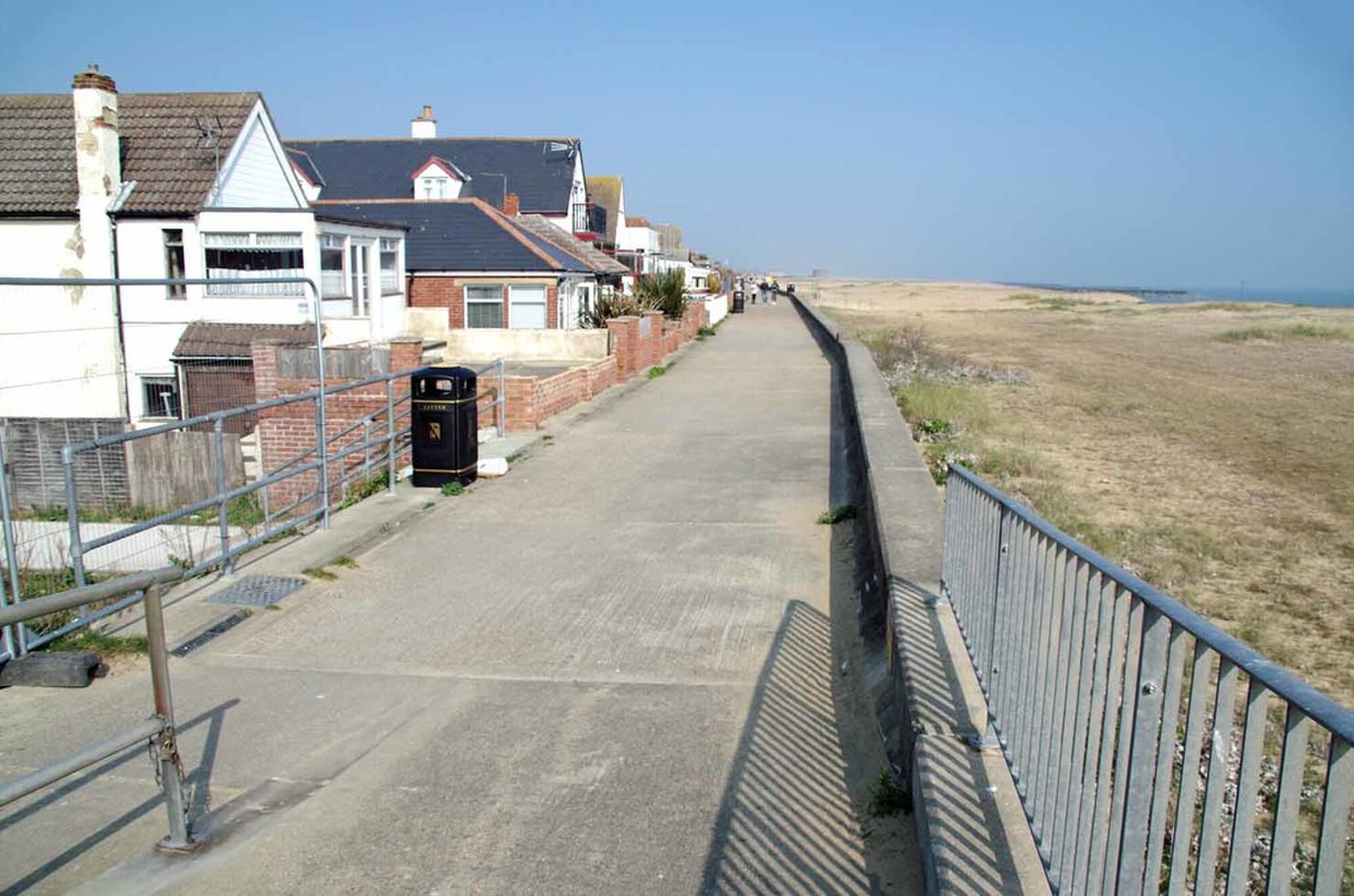When people in Britain hear about poverty, they’re usually shown stories like Jaywick, a coastal town in Essex described by the BBC as “England’s most deprived neighbourhood.” Reporters visit its cracked pavements and boarded-up shops every few years, interview kind-hearted locals who “make the best of it,” and move on. Politicians promise “levelling up” or “regeneration,” but a decade later Jaywick still tops the same deprivation index.
This isn’t a coincidence. It’s the predictable outcome of capitalism.
And the contrast with China, where socialism eliminated extreme poverty nationwide, shows exactly why.
What Deprivation Really Means
In Britain, the Index of Multiple Deprivation ranks neighbourhoods by income, health, education, housing, crime, and employment. Every few years, the government updates the list and the same working-class communities stay at the bottom.
The BBC’s 2025 report found:
- Jaywick was still the poorest area in England, as it had been in 2010, 2015, and 2019.
- Seven of the ten most deprived areas were in Blackpool.
- Half of all neighbourhoods in Middlesbrough are “highly deprived.”
Even worse, 82% of areas identified as “most deprived” in 2019 were still in that category six years later. In other words, poverty isn’t moving, it’s entrenched.
So why does nothing change?
Because these places didn’t “fail.” They were abandoned, casualties of capitalism’s shifting priorities.
Deindustrialisation: The Ruin of the Working Class
From the 1950s through the 1980s, Britain’s industrial heartlands — in the North, the Midlands, South Wales, and parts of Scotland — were centres of working-class life and organisation. Steel, coal, shipbuilding, and manufacturing sustained whole communities. These industries were built by labour, and their workers formed the backbone of Britain’s trade unions and socialist movements.
But as capitalism entered crisis in the 1970s, the capitalist class needed to restore profits by crushing the power of the working class. Margaret Thatcher’s government, backed by finance capital, deliberately shut down industries that no longer yielded sufficient returns.
The result? Entire towns were stripped of their means of existence. Factories closed, mines were sealed, and with them went schools, pubs, and solidarity itself.
Capital didn’t “forget” these towns, it fled them. Investment followed profit, not people.
Austerity and the Hollowing of the State
When New Labour came to power in 1997, they promised to “rebuild” through market-led “regeneration.” What that meant in practice was handing public assets to private developers: luxury flats in place of social housing, call centres in place of factories, and endless “public-private partnerships” that enriched investors while impoverishing councils.
After the 2008 crash, austerity hit. Central government gutted local budgets, forcing councils to slash welfare, housing, and youth services. Community centres closed, libraries were sold off, and social care collapsed.
The capitalist state didn’t “lose control.” It was doing exactly what it’s built for: protecting capital at the expense of labour.
That’s why Jaywick, Blackpool, and Middlesbrough look the way they do, and why even ministers now admit the system “has left some communities broken.”
The Illusion of “Levelling Up”
Every government since Thatcher has claimed to have a plan for “left-behind areas.” “Levelling up,” “Pride in Place,” “shared prosperity” — these slogans recycle every few years. They hand out small grants to councils that are already bankrupt, often tied to bureaucratic bidding wars or short-term “innovation zones.”
None of this changes the base of society: who owns production, who commands labour, who controls investment.
So long as production is privately owned, capitalists will not invest in unprofitable communities. The state can only offer incentives or relief, never transformation.
This is the difference between managing poverty and abolishing poverty.
How Socialism Tackled Poverty in China
In China, poverty wasn’t managed, it was planned out of existence.
After the 1949 Revolution, the Communist Party of China (CPC) redistributed land, built rural healthcare and education, and began industrialisation through socialist planning. This laid the foundation for later prosperity. Even when the economy modernised and markets were introduced, the commanding heights (essential industries) remained under public control.
Between 2013 and 2020, under Xi Jinping, China launched the world’s largest anti-poverty campaign: Targeted Poverty Alleviation (精准扶贫).
Instead of vague slogans, the Party mobilised millions of cadres to visit every poor household, identify the causes of poverty, and create tailored plans for each family.
China’s programme combined:
- Industrial support: creating jobs through rural industries, co-operatives, and e-commerce.
- Relocation: moving over 10 million people from ecologically fragile or isolated areas into new homes with access to transport, schools, and hospitals.
- Education & healthcare: ending intergenerational poverty through free schooling and near-universal medical coverage.
- Infrastructure: roads, electricity, internet, and clean water to every village.
By 2020, 98.99 million rural people had been lifted from absolute poverty. All 832 designated poor counties were officially removed from the list. China achieved the UN’s 2030 poverty goal a decade early.
Socialist Planning vs. Capitalist Anarchy
Why did China succeed where Britain fails?
Because under socialism, the state represents the working people, not the capitalist class.
The CPC doesn’t “ask” private investors to be kind, it directs resources according to the social plan. It mobilises political, human, and economic power to transform living conditions as a matter of state policy.
This is the essence of socialist planning: using public ownership of the means of production to serve collective needs rather than private profit.
In Britain, capital rules the state. In China, the state rules capital.
The Role of the Party and the Mass Line
A key reason for China’s success is the Party’s ability to combine central planning with the mass line — “from the masses, to the masses.”
Cadres didn’t just sit in offices; they lived in poor villages, worked with local people, and learned the real causes of hardship. Solutions weren’t imposed from above but developed through consultation and collective participation.
This mass mobilisation — tens of millions of Party members working in villages — has no equivalent in capitalist states, where bureaucracy and profit motives dominate.
The “Free Market” Can’t Free You
Liberals often argue that poverty persists because of “inefficiency,” “bad management,” or “political neglect.” But poverty isn’t a policy failure, it’s a necessary feature of capitalism.
Capitalism needs unemployment and deprivation to discipline labour, lower wages, and generate profit. If every worker had security and dignity, exploitation would collapse.
That’s why Britain can pour billions into banks and arms deals but claim there’s “no money” for social housing. Poverty isn’t an accident. It’s a tool of class rule.
What the British Left Can Learn
For socialists in Britain, the lesson isn’t to demand a “nicer capitalism” or more generous handouts. It’s to fight for power: political, economic, and social.
Ending deprivation requires:
- Public ownership of key industries, finance, and housing;
- National economic planning based on human need, not profit;
- Democratic control of production through worker and community power;
- A revolutionary party capable of uniting the working class and leading it to seize state power.
From Jaywick to Jinggangshan
When the UN visited Jaywick in 2018, its special rapporteur called it “a symbol of Britain’s neglect.” The same year, China had already built thousands of new rural communities, relocated millions from mountain villages, and created collective prosperity where once there was famine.
That’s the difference between capitalism and socialism: one requires poverty, the other abolishes it.
China’s achievement isn’t a miracle, it’s the logical outcome of Marxism-Leninism applied to China’s conditions. By placing the means of production under social control and planning development around the needs of the people, it demonstrated that human poverty is not natural, it’s political.
As Marx wrote, “The emancipation of the working class must be the act of the working class itself.” Jaywick’s struggle, like that of every deprived community in Britain, won’t be solved by pity or policy, only by power.





